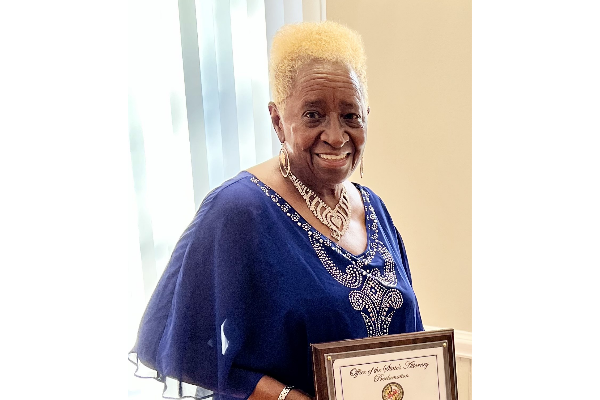Gabrielle Bryant, resident of Largo Landing Fellowship House, grew up in Washington DC near the U.S. Capitol in a mixed-race neighborhood with few black residents. Initially, neighbors looked upon Ms. Bryant and her family in a disapproving way, often acting in an unfriendly manner and sometimes even cursing at them for no apparent reason.
During the early days of her life, Ms. Bryant recalls watching TV with her family and witnessing blacks
being hosed down and beaten by the police, especially the young, black boys when caught for causing trouble. She observed the stark contrast of leniency in how the white-colored kids were punished for the same crimes.
Once, when she was a child traveling to North Carolina with her family to see her grandfather, they
stopped to find a women’s restroom with signs that separated ‘colored’ and ‘white’ facilities. That was one of the first experiences that she recalled of segregation. Looking back during the civil rights movement, she recalled that there were a lot of protests when Dr. Martin Luther King Jr. died, and Washington, DC’s H Street was burned to the ground.
Gabrielle attended Terrell Junior High School, a segregated institution, and later transferred to Stuart
Junior High School which welcomed mixed races. It was quite different for her – being around white
students when she was used to being surrounded by only blacks. At first, Gabrielle kept to herself and minded her own business because she didn’t want to suffer harsh retaliation if she said something others didn’t like. But she was able to adapt. Over time, friendships were fostered, and eventually, one of her best friends was a white student.
Ms. Bryant believes the greatest accomplishment of the civil rights movement was the legal right for
blacks to vote. She also feels strongly that in order to improve current civil rights issues, people should be educated on how to talk to each other, and to understand the real issues people face in their daily lives. An example – over time and through the love and kindness that Gabrielle’s mother demonstrated to others in that unfriendly childhood neighborhood, friendships were built and there was eventually a sense of people coming together.
As each of us strives for peace and happiness in our lives, the life experiences like those of Ms. Bryant reflect an ongoing need for all of us to be appreciative and respectful of others – regardless of race. She now feels she can talk to anybody, and it does not make a difference; she doesn’t live in fear anymore and feels God watches out for her.





